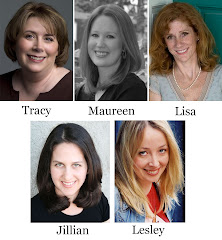Oh man, do I love writing dialogue. It's easily one of my favorite portions of writing a book...especially when I can instill some quirk, some humor, to whatever conversation is going on. Actually, not just humor, but any emotion. Give me some angst, fear, sadness, anger, whatever...and I'm along for the ride. Happily.
The thing is, writing dialogue can be tricky. Dialogue is not the same thing as calling your best friend up on the phone and having a "let's catch up" chat. In the context of a book (or a play, or a script, etc.) dialogue is necessary to push the story forward. Therefore, every word said needs to be relevant in some form or fashion. Otherwise, the reader will become bored.
Mostly, I don't need to spend a lot of time thinking about dialogue, because I tend to know going into the scene what information I want to get across. I also tend to know what information I only want to allude to, and possibly even more important (at least for me), I know what emotions I need to show.
That's not to say I always get dialogue right the first time up to bat, because that rarely happens. What does happen, though, is I can see what's wrong, what's right, what I need to emphasize some more, and what needs to go. Generally speaking, it takes me three or four runs through a scene before I'm content enough with the dialogue to move on.
Again, most of what I do is pure instinct: what *feels* right and what *feels* wrong. I trust my instincts, so trying to define exactly how I write dialogue is a fairly difficult task for me. That being said, I gave my process (if you can call it that) a lot of thought over the last few days, trying to find some nugget of information to pass along. Hopefully something that would make sense, and even better, actually be of help.
What I came up with might not work for you, and certainly might not work in every sentence your characters might say, but I think it's a great place to start. Dialogue should do one of three things (or all):
1. Ask a question that is pertinent to the unfolding story. Now, I don't necessarily mean an actual question from one character to another, though that certainly works as well. What I mean is that at the end of the dialogue, the reader will have a question in their mind that wasn't there before. This could have something to do with the plot, with a character (or characters), with any facet of your story that is important.
2. Answer a question that was already asked. Maybe several chapters ago you broached a question that has been in the reader's mind, and now, that question is answered.
3. Lay the groundwork for a future question or answering thereof. Okay, I know that's a confusing sentence, but hopefully my meaning comes across loud and clear. Perhaps the dialogue in a particular scene doesn't specifically answer or ask a new question, but it lays the groundwork for a question to be answered...or to be asked...later on.
Also, not mentioned in the above three, but highly important on my list, is emotion. I always want my reader to know what emotions are pushing my protagonist's buttons, so they can easily slip into her (or his) shoes. That's not to say that reader needs to understand EVERY character's emotions the second that character feels them, because the reader doesn't. But (again, in my opinion), if I'm in someone's head, then I need to know what they're feeling. I might not know all of their motivation(s) yet, and that's okay, but if they're angry/sad/confused whathaveyou, then yes...I feel that is pertinent information to get across.
Hopefully the above gives a little clue to how I handle dialogue, even if most of the time, I don't really know myself. I trust my instincts to lead the way.
Hope everyone has a terrific Monday! Until next week...
Monday, July 27, 2009
Subscribe to:
Post Comments (Atom)


4 comments:
Totally agree! Great post!
Love your post, and the way you're so good at analyzing how/why you write something. I always have trouble figuring out why I do something -- I'm with you on the instinct part!
What Jillian said! You really are great at analyzing, Tracy. I'm going to have to sign up for your next creative writing class, too!
Also agree! ;-D
You are so damn good at making sense of the process. Very cool.
Post a Comment